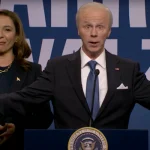YouTube’s crackdown on AI-generated fake movie trailers is a bold move to protect authenticity in entertainment. Discover the impact on fans, creators, and movie industry.

Back in the day, movie trailers were a big deal. They gave you a quick peek at the movie, getting you pumped up for what was coming. They could even make your heart race a little. I still remember being a kid in a dark theater, watching the trailer for Jaws.
That creepy music got me hooked before I even had my ticket. But now, with the internet, things are different. YouTube’s got a ton of fake movie trailers popping up. They’re made with computers and look super real, but the movies? They don’t even exist. It’s all pretty confusing.
So, YouTube’s stepping in. On May 12, 2025, Deadline said they stopped letting channels making these fake trailers earn money from ads. It feels like they’re trying to keep things real in a world where it’s tough to tell what’s legit anymore.
This news kind of sneaks up on you, but maybe it’s not that shocking. Deadline says YouTube is targeting channels like Screen Culture and KH Studio. These guys are cranking out trailers for movies that aren’t even a thing—like new Superman flicks or Marvel team-ups Hollywood never signed off on.
These aren’t just goofy fan videos; they’re slick fakes made with AI that look pro-level. They’re so good that even big shots like Warner Bros. Discovery got mad and wanted the ad cash from those videos. YouTube’s response? Shut it down.
They’re cutting off the money for these creators who’ve been tricking people with fake stuff, and now those folks have to figure out their next move.
This isn’t just a little warning—it’s a big statement. Trailers matter a lot for hyping up movies. They’re put together just right to get you excited without spilling all the beans.
They’re like the movie saying, “Hey, check me out!” But when a trailer’s fake, that trust goes out the window. Picture this: you click on a trailer for a new ##Star Wars## movie, and then—bam—it’s not real, just some computer trick by a clever editor. It’s not just a bummer; it messes with your head.
YouTube doing this shows how people are stressing about tech, especially AI, making it hard to spot what’s real. Fake videos aren’t new, but when they sneak into movies—our go-to escape from life—it feels off.
Here’s the nitty-gritty. YouTube’s got rules against videos that use tech to fool people. They also say if you borrow someone else’s stuff, you’ve got to tweak it, not just copy it for clicks.
These fake trailer channels went too far with videos that looked way too much like the real deal. Some, like KH Studio, are pushing back, saying they didn’t mean to lie. They call it “what if” fun—entertainment, not tricks.
The KH Studio boss told Deadline they’ve been at it full-time for over three years, just wanting to play with cool ideas. Fair point, but here’s the catch: when your “what if” looks exactly like a real trailer, people get mixed up, and that matters more than what you meant.
For movie companies, it’s a mixed bag. They’re probably happy because fewer fakes mean their real trailers stand out more. Trailers cost a ton and are made to grab you without ruining the story—fakes mess that up.
But fan-made stuff can also be awesome, keeping the buzz going between movies. The key? Be upfront. A fan video that says “Hey, I made this” can be a blast. One that pretends to be real just stirs up trouble. YouTube cracking down might make that line clearer.
Zoom out a bit, and it’s bigger than trailers. These days, telling real from fake is tricky, and AI’s making it trickier. This isn’t just about movies—it’s about all of us figuring out what’s true when anything can look real.
YouTube’s move is like a mini version of that mess. They’re stuck deciding if they’re a free-for-all playground or a rule-keeper. By cutting off ad money, they’re picking honesty over chaos, but it’s gonna shake things up.
Will channels start labeling stuff better? Will studios clamp down on fan videos? Or is this just a speed bump before more tech tricks hit?
At the end of the day, YouTube’s decision is like holding up a mirror to right now. Movies are magic because they take us somewhere else and make fake stuff feel real.
But when that magic gets used to fool us, it loses something special. This crackdown won’t kill the problem—AI’s here to stay, and people are too creative—but it’s a nudge to keep the internet a little truer.
For now, trailers will keep playing, and hopefully, we’ll know which ones to believe when the lights dim.
source DEADLINE





